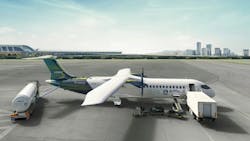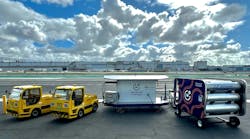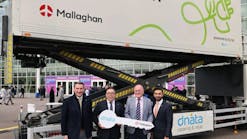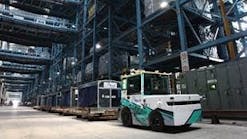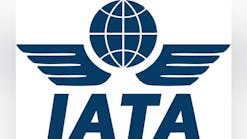HIA Milestone Delivery Report Lists Critical Next Steps for UK To Be Leader in Global Hydrogen Aviation Race
The Hydrogen in Aviation alliance (HIA), formed of easyJet, Rolls-Royce, Airbus, Ørsted, GKN Aerospace, Bristol Airport and ZeroAvia, has today released its Milestone Delivery Report – outlining the steps and timeline the UK Government and industry needs to follow to secure its position as a global leader in hydrogen-powered aviation.
The UK is home to many world-first advances in hydrogen-powered aircraft technology, from hydrogen engine testing to the first flights of hydrogen-fuelled planes – making it well placed to be a leader in hydrogen aviation. This would secure substantial economic, employment and sustainability benefits. To realise these benefits we need an industrial strategy for the sector focussed on these long term opportunities.
The UK will need to secure massive increases in hydrogen supply. This will involve the accelerated deployment of renewable energy generation and significant investment in hydrogen infrastructure and skills.
In order to achieve this, HIA's new Milestone Delivery Report – which has been shaped by accurate aviation demand figures and other critical industry data – outlines specific steps that need to be taken by industry, government and regulators to equip the UK with everything it needs to be a leader in the field of hydrogen-powered aviation.
Johan Lundgren, CEO of easyJet and first chair of HIA, said: “It's without doubt that the UK is well placed to be a global leader in hydrogen – but the opportunity will be gone if we do not act now to build on all the great work that has already been done.
“The breakthroughs in hydrogen-powered technology happening across the UK are truly astonishing but these advances will be inconsequential if we fail to complement them with the appropriate skills, infrastructure, investment and regulation needed to support hydrogen aviation.
“HIA's Milestone Delivery Report outlines the critical steps and the timeframe needed to do this and if followed, not only will it create significant wealth, jobs and prosperity across industry and across the UK, it will be a vital component in decarbonising the aviation sector.”
Dave Lees, CEO of Bristol Airport, said: “Having hydrogen refuelling infrastructure at airports, operated by a skilled workforce, is critical to the success of zero emissions flight. Leaders such as Bristol Airport stand ready to work with industry, government, and regulators to begin the first commercial hydrogen flights within this decade. We can play our part to support the UK to seize the economic and social opportunities of zero emission flight.”
Delivering Net Zero and Creating Jobs for the Future
The aviation sector is incredibly valuable to the UK's economy, bringing in more than £22bn directly to GDP, plus £34bn from exporting aerospace components. It also directly employs over 230,000 people.
HIA believes hydrogen will be critical in securing these jobs into the future as zero-emission technology develops, and this will bring immense value to regions all over the UK.
East Midlands Hydrogen, the UK's largest inland hydrogen cluster estimates its future hydrogen network could support up to 110,000 jobs in just the East Midlands alone – showing the potential that hydrogen has in terms of job creation.
As well as preserving an industry that is a key part of our economy, HIA maintains hydrogen could generate an additional £34bn for the UK every year.
